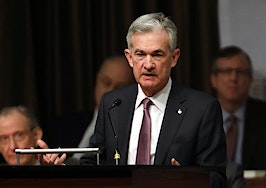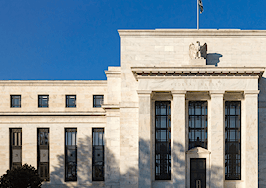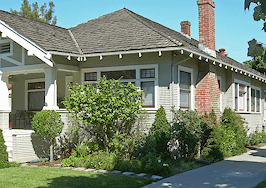The Federal Reserve held interest rates steady at 2.25 to 2.50 percent on Wednesday as was widely expected. The board also signaled it expects no increases in 2019 – after four in 2018 – which could mean mortgage rates will continue to hold steady or even dip, according to economists.
“It’s no surprise that the Fed decided to hold rates steady today, given its January pledge of taking a patient approach to reviewing data and making interest rate decisions,” Danielle Hale, the chief economist at realtor.com said, in a statement.
The Fed projections indicated an expected economic growth of 2.1 percent in 2019, down from December’s projection of 2.3 percent. Next year, the Fed is projecting growth to slow to 1.9 percent and 1.8 percent in 2021.
“In our interpretation, the Fed may be overreacting to market volatility that occurred in December and distortions to economic activity and data from the government shutdown,” LendingTree Chief Economist Tendayi Kapfidze said in a statement. “While many measures of economic growth have slowed, sentiment data which is more timely has rebounded from those declines.”
“There are also seasonal distortions that have been occurring in the first quarter, with the economy often accelerating in the second and third quarter,” Kapfidze added.
Kapfidze believes that, despite the Fed signaling it won’t raise interest rates this year, there still remains the possibility of one or two rate hikes later in the year, perhaps beginning in September. Those hikes would occur if growth accelerates back above potential, unemployment remains low and inflation is pushed back towards 2 percent, perhaps by wage inflation, Kapfidze said.
While interest rates aren’t directly tied to mortgage borrowing rates – which have remained under 5 percent on 30-year fixed-rate mortgages for most consumers in 2019 – the Fed keeping interest rates static could mean that mortgage rates stay the same or even dip.
“Today’s meeting also gives us clues about the road ahead for mortgage rates, which are influenced by both short-term rates and the longer-term economic outlook,” Hale said. “Despite current short-term rate increases, recent economic forecasts have been less certain, which has caused mortgage rates to slip recently.”
Kapfidze noted that lower interest rates could support the slowing housing market. For consumers, the pause in rate hikes will directly result in a break in rising interest rates on borrowing for credit cards and personal loans.







